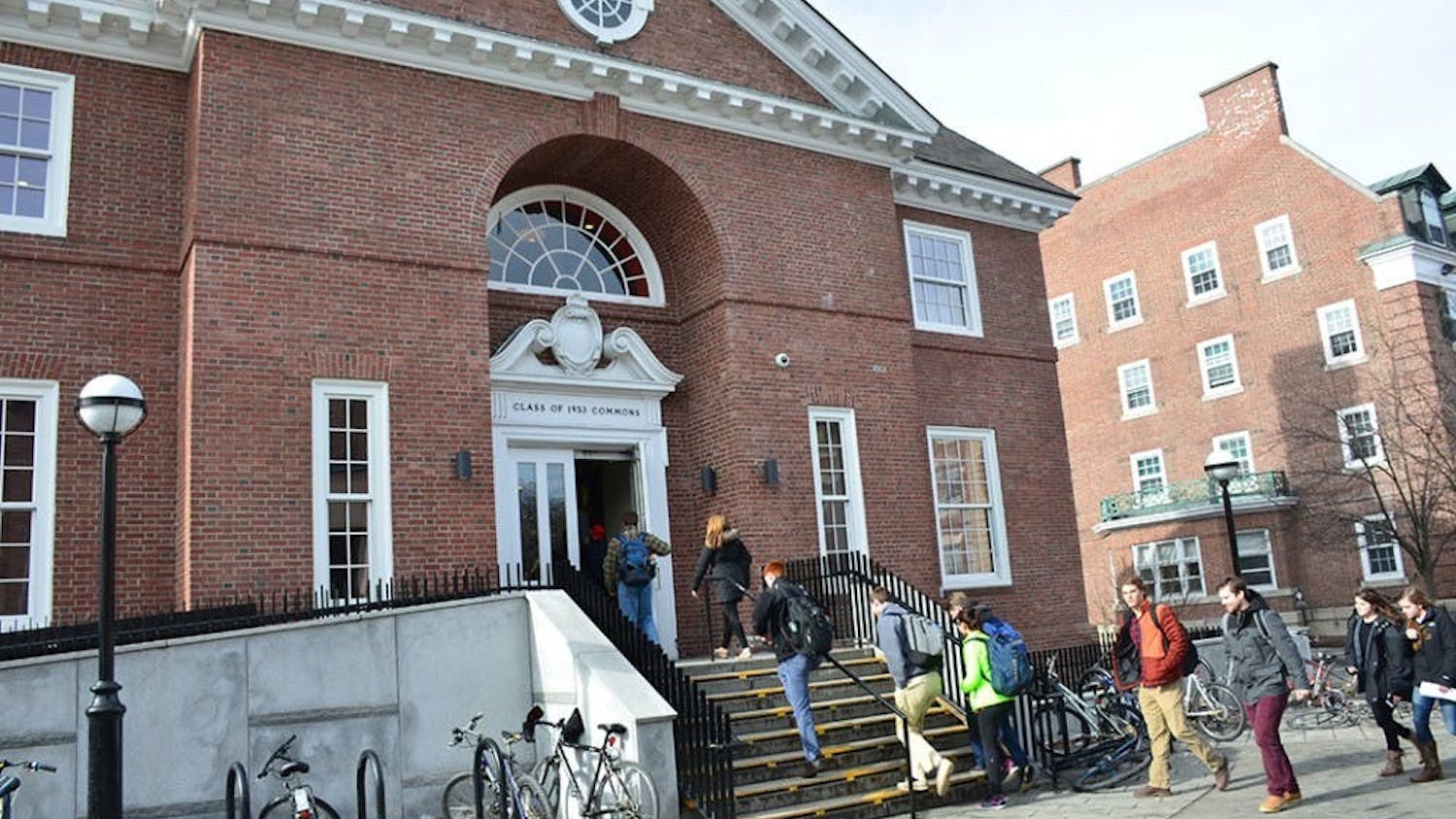The D-Plan’s flexibility is both its greatest advantage and biggest drawback, faculty, staff, alumni and students concluded at the first set of Moving Dartmouth Forward discussion sessions on Monday. The two meetings, held in the afternoon and evening to allow more community members to participate, were presented by the D-Plan Study Group, a research committee formed in response to College President Phil Hanlon’s address to the faculty last November.
The first meeting took place at noon in Haldeman Hall and drew a crowd of around 100 people, while a smaller group gathered for a second meeting on the Fahey Hall ground floor that evening.
Attendees offered mixed opinions on the D-Plan. Discussion touched on housing capacity, course sequences, winter term student enrollment, adjuncts and visiting faculty teaching in the summer, international student visas, admissions, student leadership and the Greek system.
Unlike the quarter system, the D-Plan refers to a system in which students must take three leave terms during their academic career, said Institute of Writing and Rhetoric director Christiane Donahue, a member of the study group. The original version of the D-Plan required students stay on campus for one summer term, while the current system requires students to study in Hanover during the summer after sophomore year.
Committee chair and economics professor Bruce Sacerdote said that the study group sought to address how Dartmouth could foster greater continuity in student housing and more efficiently identify ways to use buildings and facilities on campus.
Philosophy professor Carey Heckman ’76, a member of the first class at Dartmouth to experience the D-Plan said he has disliked the plan since its inception.
“Nothing at Dartmouth, in my opinion, disrupts the cohesiveness of the academic and social life of students and faculty more than the D-Plan,” Heckman said. “It puts a burden on the buildings, complicates course sequences, requires faculty to teach in the summer and disrupts student relationships.”
Heckman said the plan’s sole purpose is to fit over 4,000 students on a campus built for around 3,000.
Jocelyn Powelson ’14 said that the D-Plan offers flexibility, encouraging students to demonstrate initiative and independence in planning their academic experience. She also said that it allows students to find internships during less competitive times of the year.
Audience members suggested incentives to even out enrollment over the four terms, including lowering tuition rates and organizing special seminars or classes during less popular terms. Other suggestions included expanding off-campus program offerings during the fall or moving popular foreign study programs to the fall term.
To increase residential continuity, audience members recommended requiring students to stay on campus throughout fall, winter and spring terms during their sophomore year. Others pointed to instituting a school-wide academic experience to establish continuity, like a required thesis.
Audience members also said the College could introduce residential communities modeled after those at Yale University and allow students to return the same residence halls after spending terms away from campus.
Donahue and Sacerdote said that the committee is currently examining many of these ideas.
Other members of the study group include dean of admissions and financial aid Maria Laskaris, senior associate dean of the college Inge-Lise Ameer, engineering professor Eric Hansen and presidential fellow Holly Ceplikas ’13, who works in the Office of the President.
Several students and recent graduates said that they believe sophomore summer played a crucial part in forming their identity at the College. The term, they said, promoted class bonding.
It also allows sophomores to explore leadership positions before their final years in college, Steven Tebbe ’14 said.
Laskaris said that the D-Plan is the College’s most distinctive feature, but she noted that many schools now offer more opportunities for internships and study abroad programs within a semester or trimester calendar.
Powelson said she thought students were underrepresented in the discussion, as most people present were professors.
Sacerdote said in an email that he was pleased by the turnout at the meeting but hopes to see more students and recent graduates at future forums. Students can also contribute ideas on the Improve Dartmouth website, he said. Improve Dartmouth, a recently launched website, allows users to suggest and vote on ideas that could benefit campus.
The D-Plan Study Group will post suggestions on the website.
Moving Dartmouth Forward is a series of community conversations sponsored by the Office of the President for the purpose of discussing Hanlon’s initiatives. The next Moving Dartmouth Forward talks will address housing and new learning technologies, and are scheduled for Feb. 17 and March 3, respectively.



